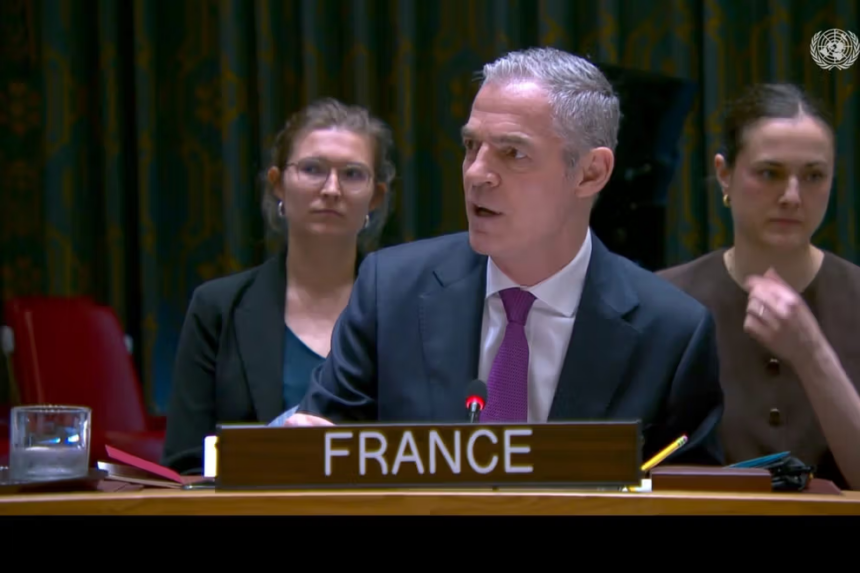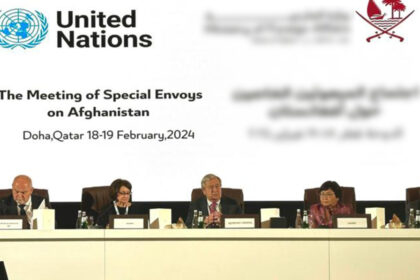RASC News Agency: In a forceful address to the United Nations Security Council, France’s Permanent Representative, Jerome Bonnafont, issued a sharp condemnation of the Taliban’s ongoing violations of human rights in Afghanistan, particularly the group’s systematic repression of women and girls. Bonnafont urged the Council to adopt immediate and coordinated action to hold the Taliban accountable for its brutal policies, which he described as an existential threat to the future of the Afghanistani people. Speaking at the Council’s latest session, Bonnafont stated that the Taliban’s authoritarian regime has not only dismantled constitutional freedoms but has become the primary obstacle to Afghanistan’s social, economic, and political recovery. He criticized the group’s draconian bans on female education, employment, and movement, calling them a “codified architecture of gender apartheid designed to erase women from public life.”
“The Taliban’s campaign of repression is not accidental it is deliberate, ideological, and embedded in their governance structure,” Bonnafont said. “These actions violate every principle of international law and every human right the United Nations was created to uphold.” He referenced the five priority areas repeatedly underscored by the Security Council: counterterrorism, narcotics interdiction, human rights protection, unhindered humanitarian access, and the establishment of an inclusive political process. According to Bonnafont, the Taliban have failed catastrophically in each of these domains.
“Since the Taliban’s violent return to power, not a single one of these benchmarks has been met. Worse still, we are witnessing a marked deterioration in every sector of Afghanistani society,” he declared. Bonnafont expressed grave concern over recent reports of threats and assaults against UN personnel in Kabul, labeling them as “intolerable assaults on the integrity of international humanitarian operations.” He emphasized that the Taliban must be held fully responsible for the safety of international staff, and that failure to protect such actors represents yet another breach of global norms.
He also addressed the Taliban’s alarming complicity with extremist networks, pointing to the increasing activity of ISIS-K and al-Qaeda, whose presence continues to expand under Taliban rule. Despite the regime’s empty assurances, Bonnafont noted that no effective counterterrorism mechanisms have been implemented, further destabilizing the region and posing a long-term threat to global peace. The French envoy also condemned the Taliban’s failure to curb narcotics production and trafficking, stating that opium and methamphetamine remain critical pillars of the group’s shadow economy. He emphasized that Taliban authorities have neither the capacity nor the political will to dismantle these networks, which have become increasingly integrated with their own financial survival.
“We are witnessing the emergence of a rogue state governed by force, fueled by narcotics, and sustained by the suppression of half its population,” Bonnafont said. “The longer the international community hesitates, the more deeply entrenched this dystopia becomes.” In conclusion, Bonnafont called for the Security Council to adopt a unified and strategic framework to respond to the Taliban’s violations, including international accountability mechanisms and human rights monitoring. He urged world powers not to normalize or legitimize a regime that is systematically erasing the rights and identities of Afghanistani citizens.
“France will not abandon the people of Afghanistan,” Bonnafont affirmed. “We will continue to provide humanitarian assistance, amplify their voices, and stand firm against any regime that seeks to bury justice, equality, and dignity beneath layers of tyranny. Afghanistan must not be erased from the conscience of the world.”






